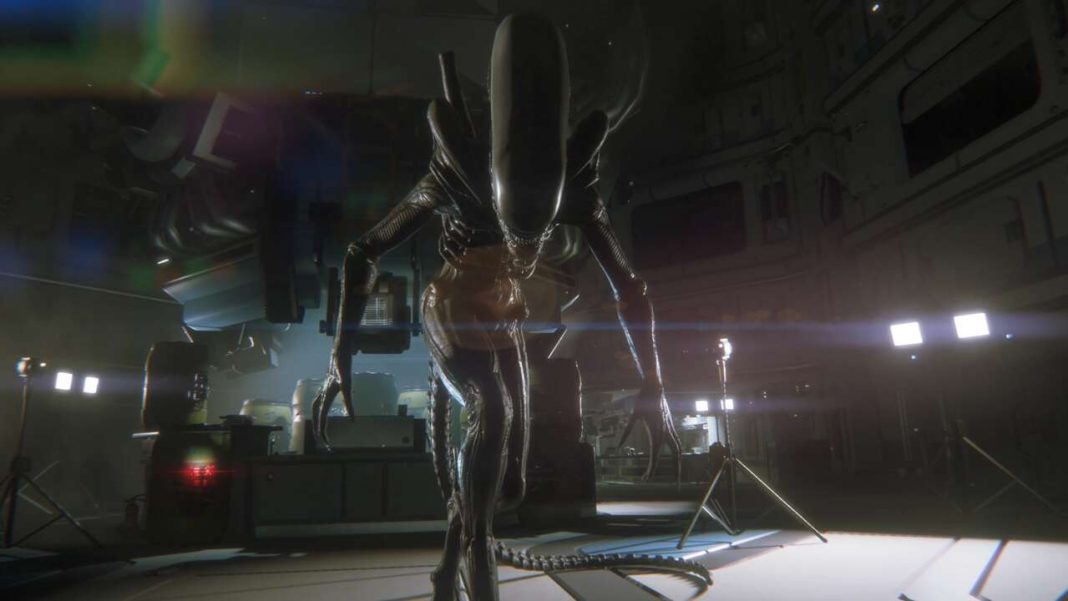Alien: Isolation turned 10 on October 6, 2024, and we’re diving into how its brilliant concepts may have been lost in translation. This article was penned before news of a sequel with the original director’s return.
It’s been ten years, yet my frustration with Alien: Isolation lingers.
Despite being one of the most impressive horror games ever, Alien: Isolation hasn’t received the recognition it deserves. It’s disappointing that a sequel never came, apart from a mobile game, to expand its intriguing world and characters, or to enhance its chilling elements inspired by the 1979 movie. The game deserved more applause.
Every couple of years, I revisit Isolation, and this year I tackled it on Hard mode. I’ve become quite skilled at the game, thanks to past experiences, allowing me to swiftly deal with androids and solve puzzles before enemies catch on.
Yet, the alien remains a formidable opponent.
The alien in Isolation is a terrifying marvel of AI design. It’s as frightening now as it was in 2014, especially on Nightmare difficulty. Even after all these years, the alien’s presence in Sevastopol station is overwhelming. I adore its terrifying nature.
The alien’s behavior is complex, making each encounter tense and engaging, even after multiple playthroughs. It’s not about the mechanics like shooting enemies or solving puzzles; it’s about the sensation of being hunted by a relentless predator.
We often wonder why others see things so differently.
I also like to read reviews from when Isolation launched. Back then, GameSpot’s Kevin VanOrd rated it a 6 due to frustrating mechanics. IGN’s Ryan McCaffrey gave it a 5.9, mentioning he died many times.
I’m quite adept at the game now, so comparing my experiences to first-time reviewers isn’t entirely fair. On my latest run, I had an abundance of items and a full flamethrower. I only died four times over 15 hours.
My aim isn’t to belittle those reviews; every player’s experience is valid. But it’s fascinating how different my journey is from theirs, and I often ponder why that is.
Recently, I watched some YouTube videos analyzing the alien’s AI. Discussions often focus on whether the alien behaves “fairly” and if it truly relies on its senses, as claimed by the developers, or if it gets extra help from the game to be more menacing.
Many players dislike the alien’s unpredictability, feeling it’s unfair rather than scary. They complain about the tension systems that keep the alien nearby, claiming it reacts as if it knows your location without reason. For some, the game’s difficulty isn’t enjoyable.
One video showed a player who wasn’t particularly skilled. The alien responded to their noisy actions, which they saw as unfair. To me, the alien acted appropriately to their mistakes.
It made me wonder if some critics disliked the game because they struggled with it without realizing it.
In his video essay on Fallout 3, critic Harry “H. Bomberguy” Brewis introduces “play conditioning,” where a game teaches expectations through experience, not tutorials. In Fallout 3, hacking seems pointless when passwords are easily found nearby, conditioning players to avoid skill investment.
This concept might have contributed to Isolation’s mixed reception. VanOrd mentioned this issue in his review, noting how passwords were conveniently placed near computers.
However, the game’s aim wasn’t to challenge your ability to find passwords. It was about making you vulnerable while hacking, heightening the tension as you hope nothing catches you off guard.
There’s an early room in Isolation that always gets me. Before the alien’s story unfolds, a human shoots at you and runs for backup. The chaotic space makes it difficult to navigate, and I often die here. A friend recently shared the same frustration.
What does this scene teach? It suggests enemies are exceptionally good at spotting you, leaving you defenseless. It doesn’t effectively guide you on using surroundings for stealth, setting a misleading tone for the game.
The alien’s unpredictable behavior contrasts with typical stealth games, where enemy routes are predictable. This can confuse players unfamiliar with such mechanics, leading to frustration.
Games like Outlast taught players to exploit enemy routes for stealth. Isolation’s alien defies this norm, causing confusion about how to handle its randomness, leading some to hide in lockers—a tedious and ineffective strategy. No wonder they disliked the game.
Alien: Isolation remains remarkable, influencing newer games like Resident Evil 7, Amnesia: The Bunker, and The Outlast Trials, which build on its success. However, developers should learn that even a great game can falter if players struggle to understand its mechanics. Difficulty shouldn’t gatekeep games; instead, they should be accessible and clear.
After a decade, my frustration remains, but I understand the game’s challenges better. Alien: Isolation is still a masterpiece and possibly my favorite game ever. Play it, but remember it requires patience and observation to truly appreciate. Let’s hope future games learn from its brilliance and its shortcomings.

